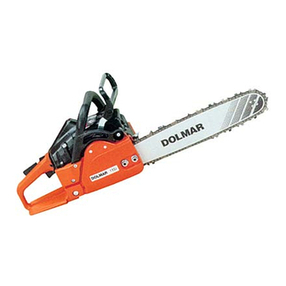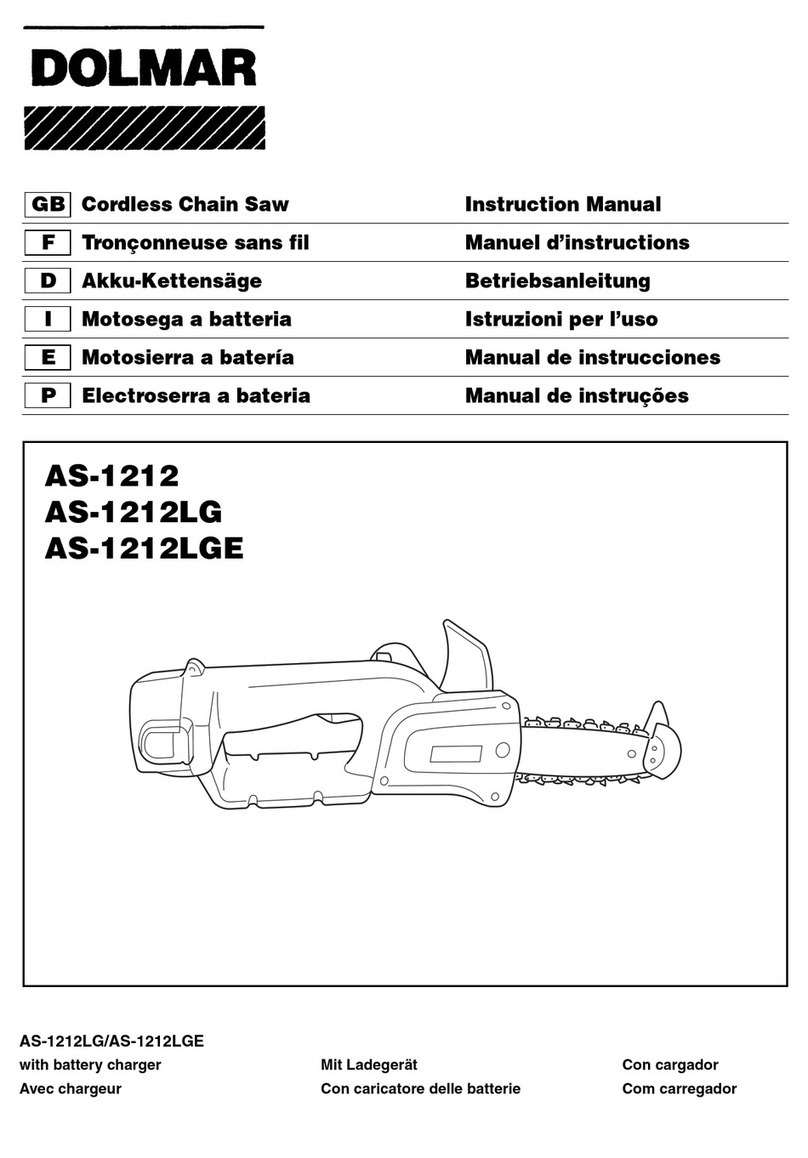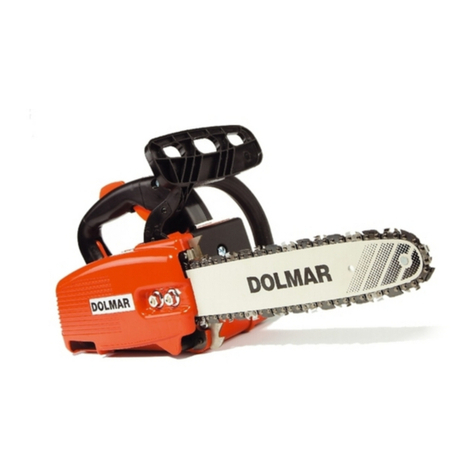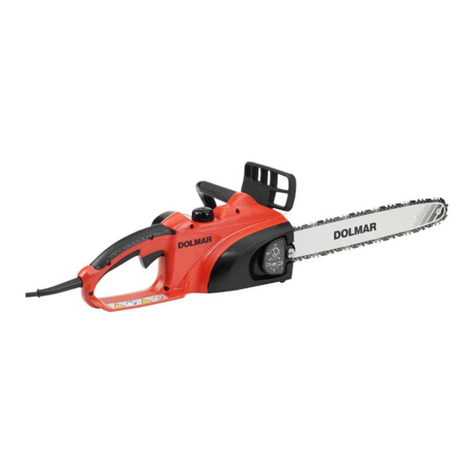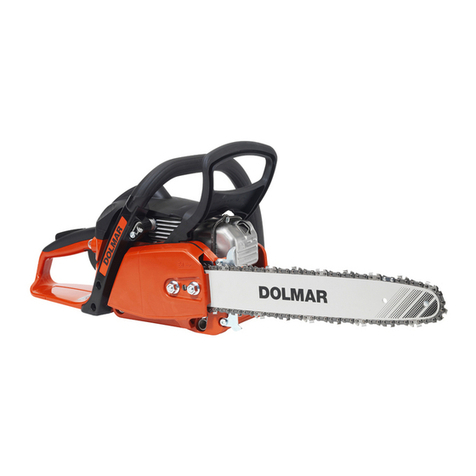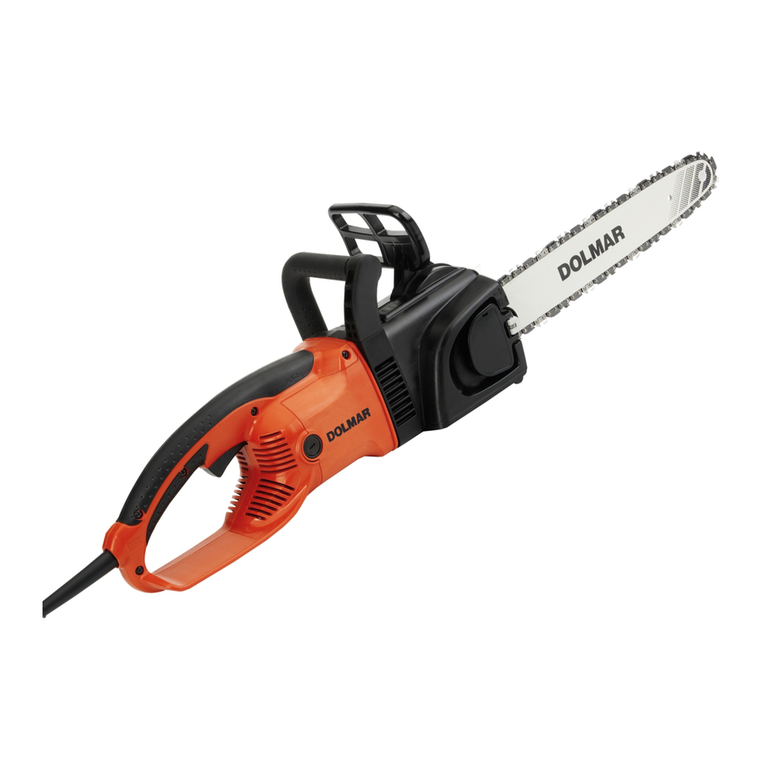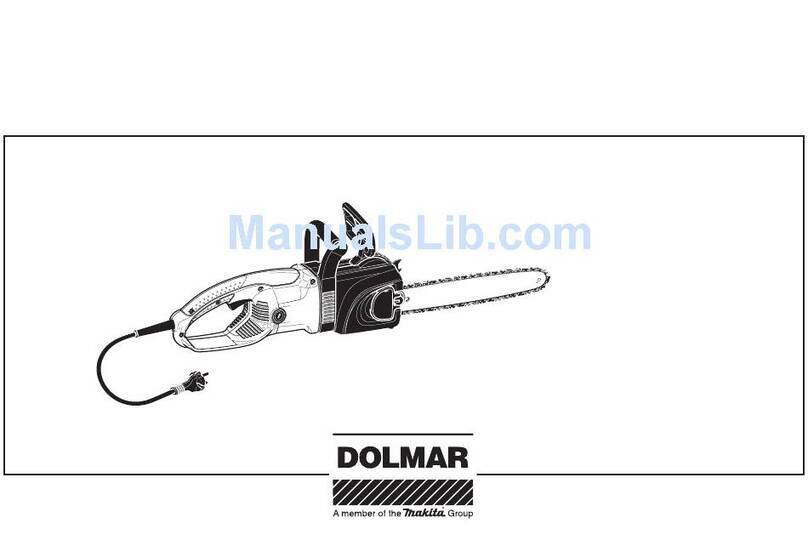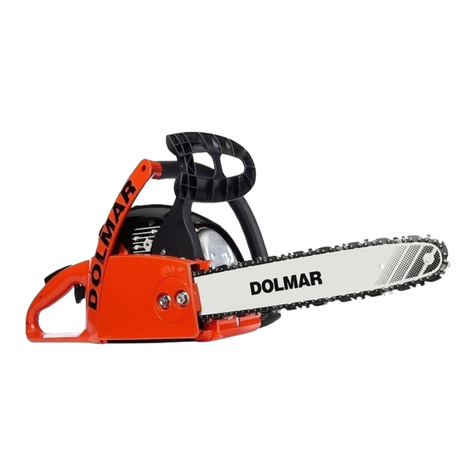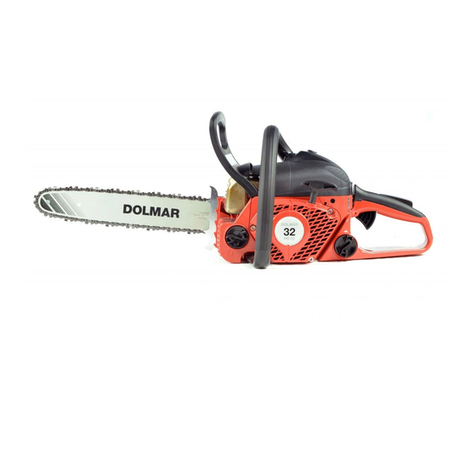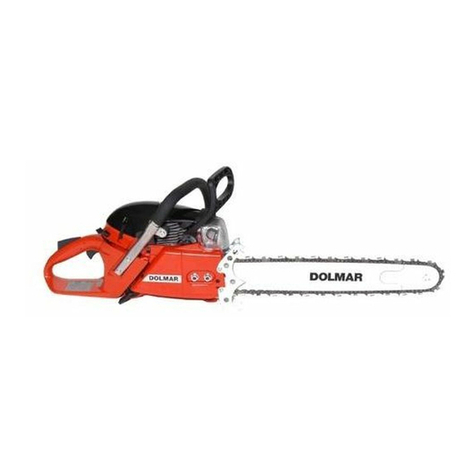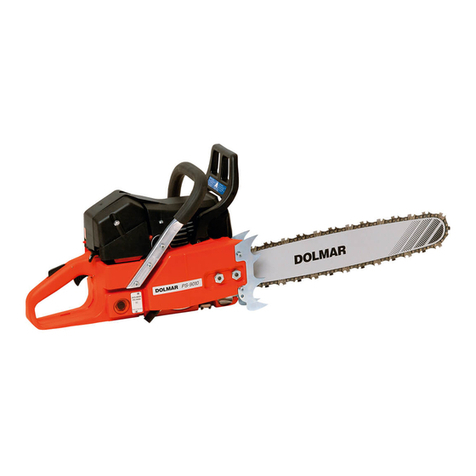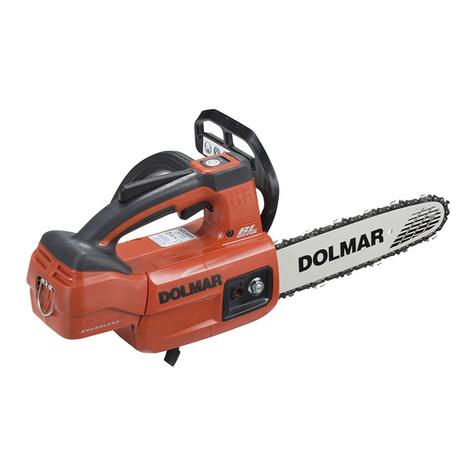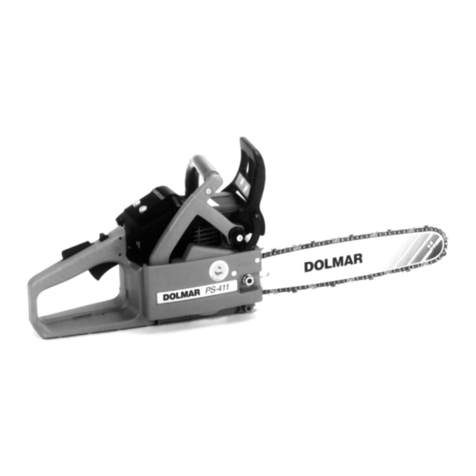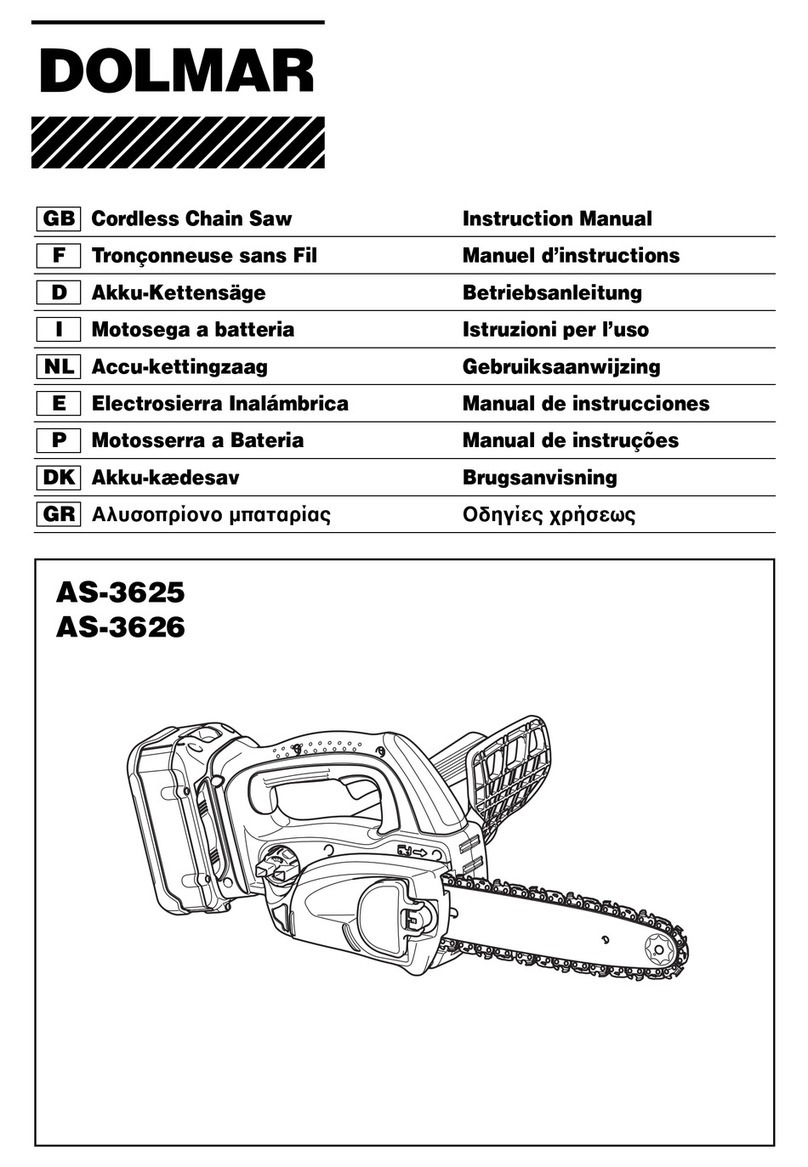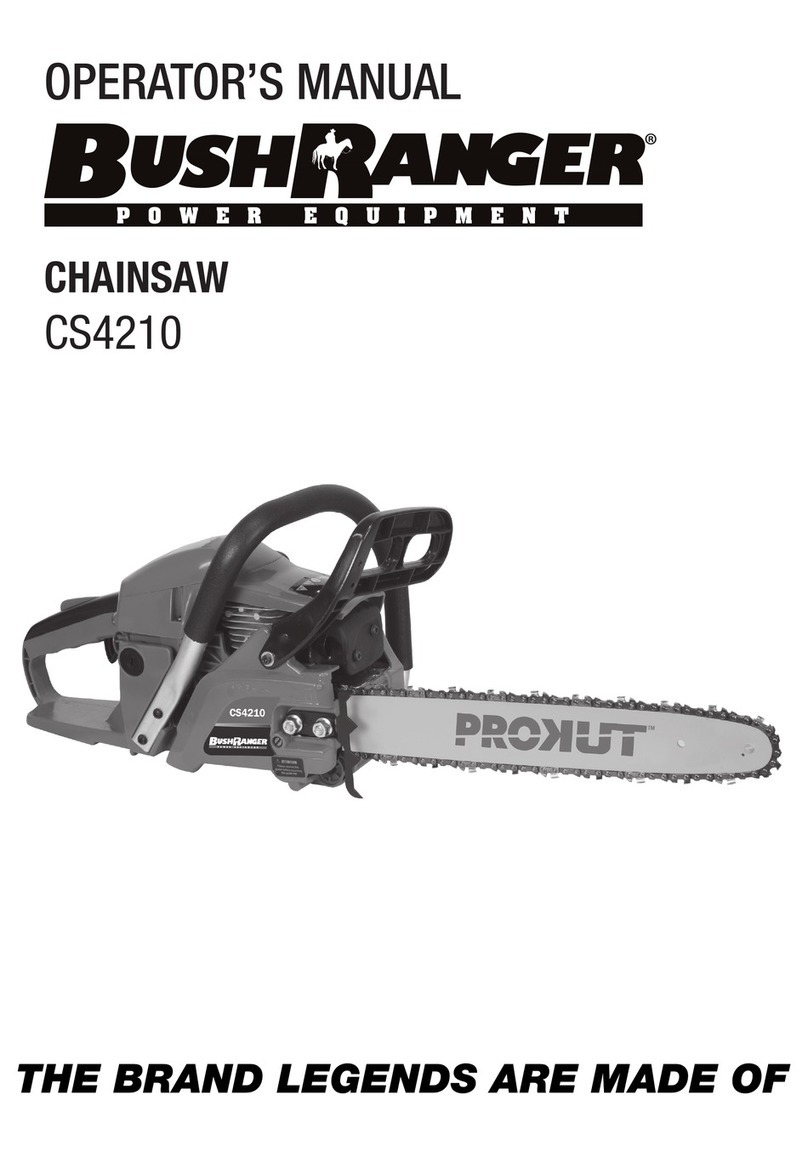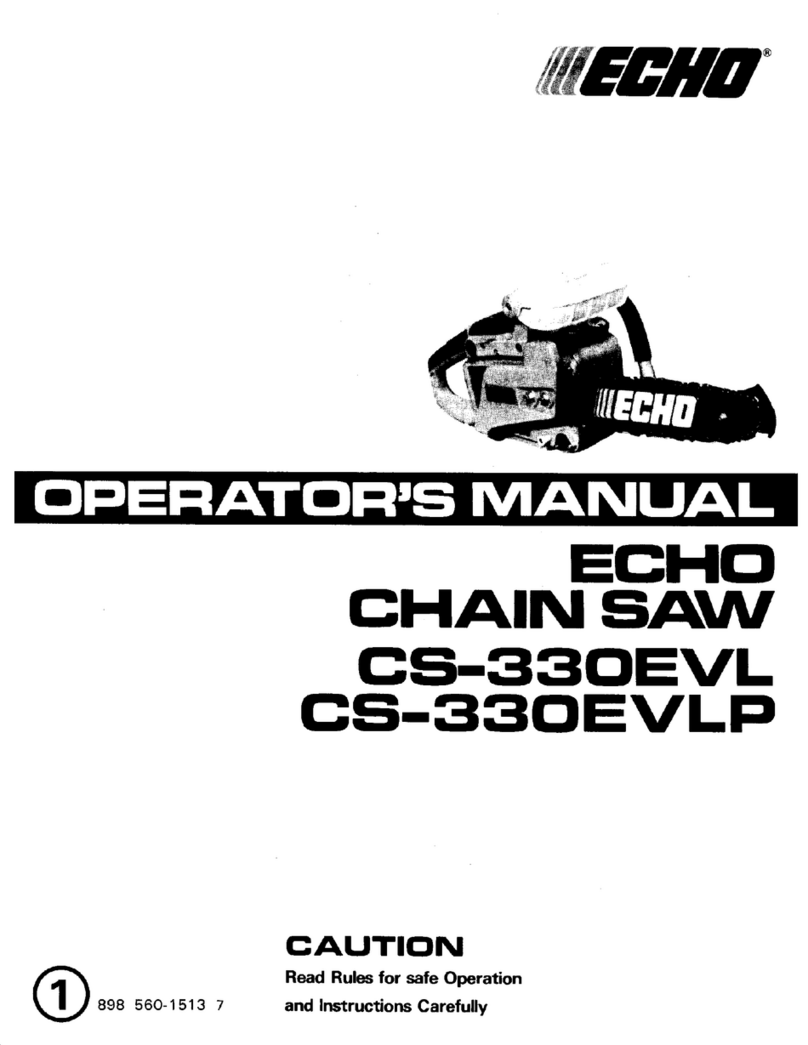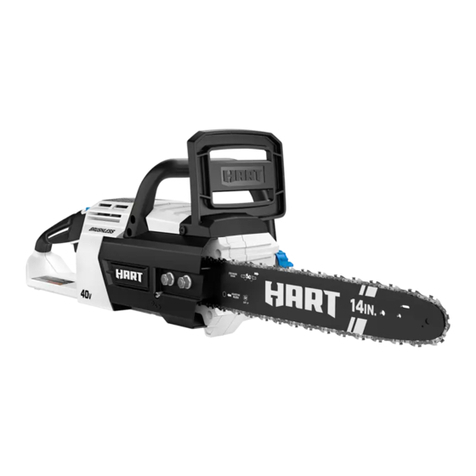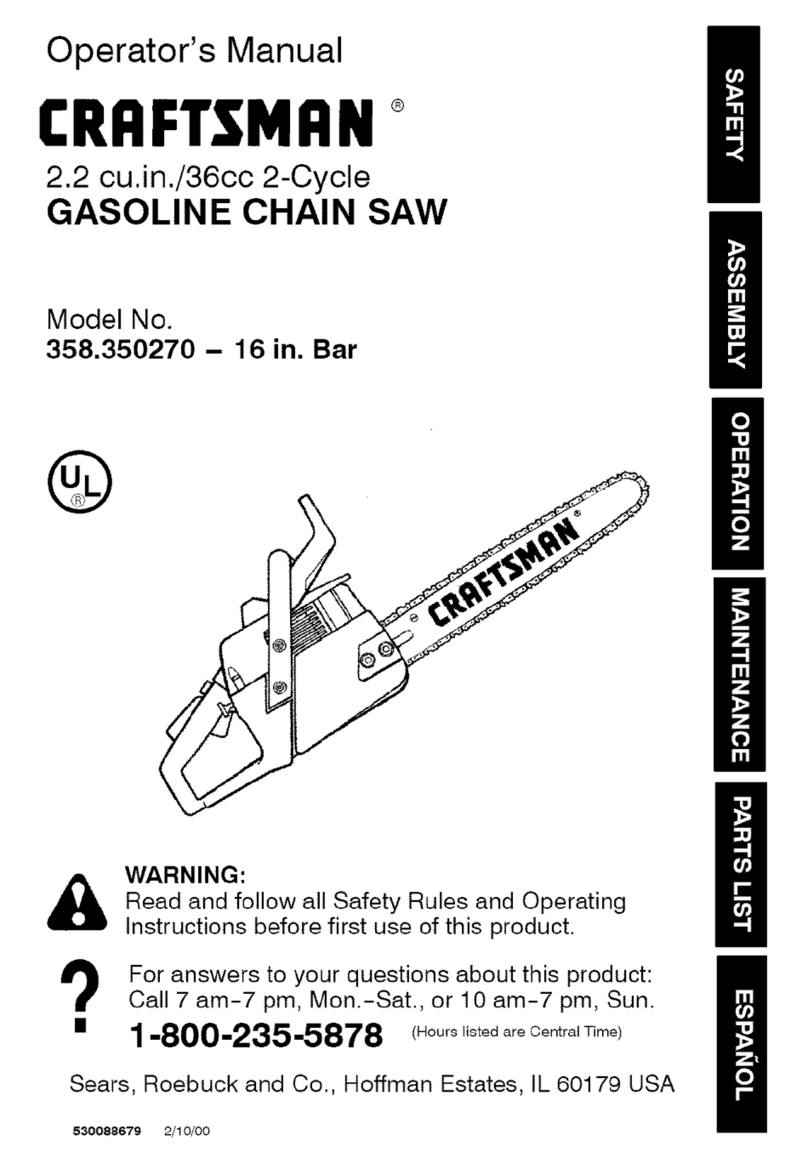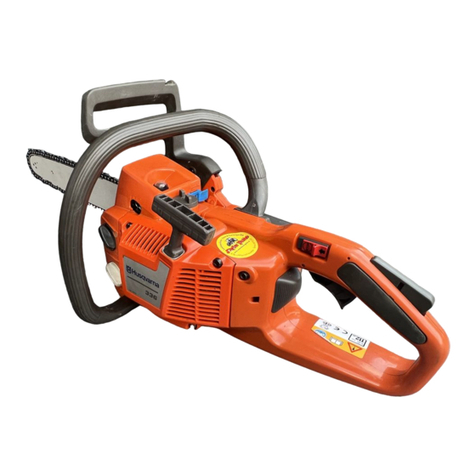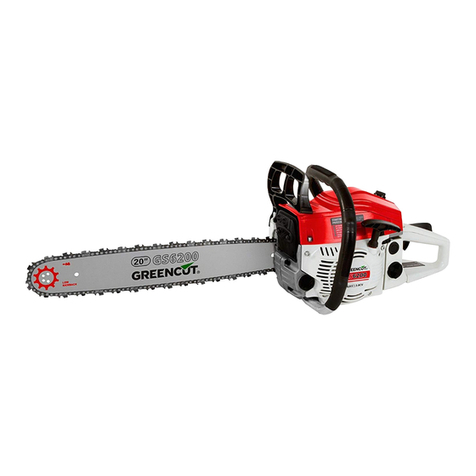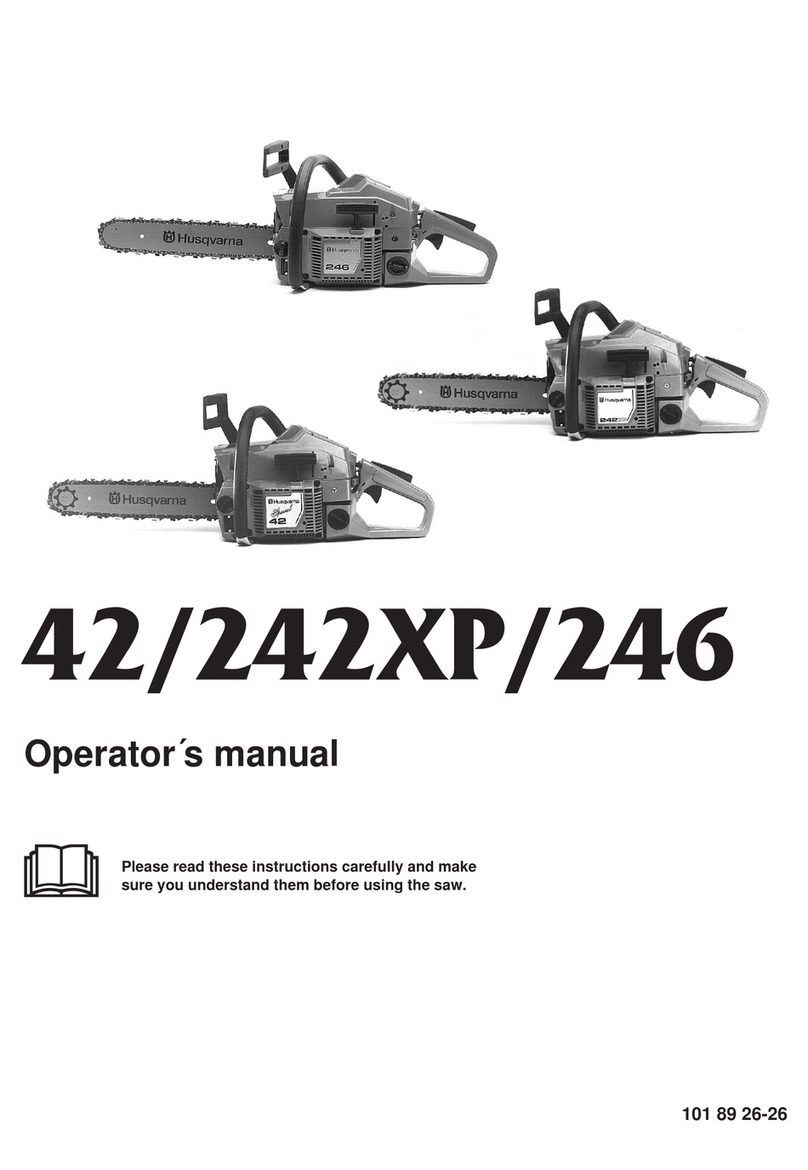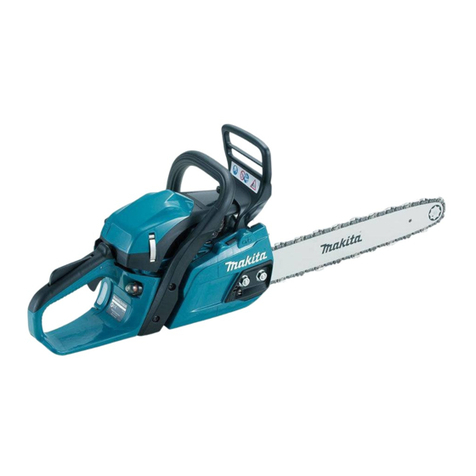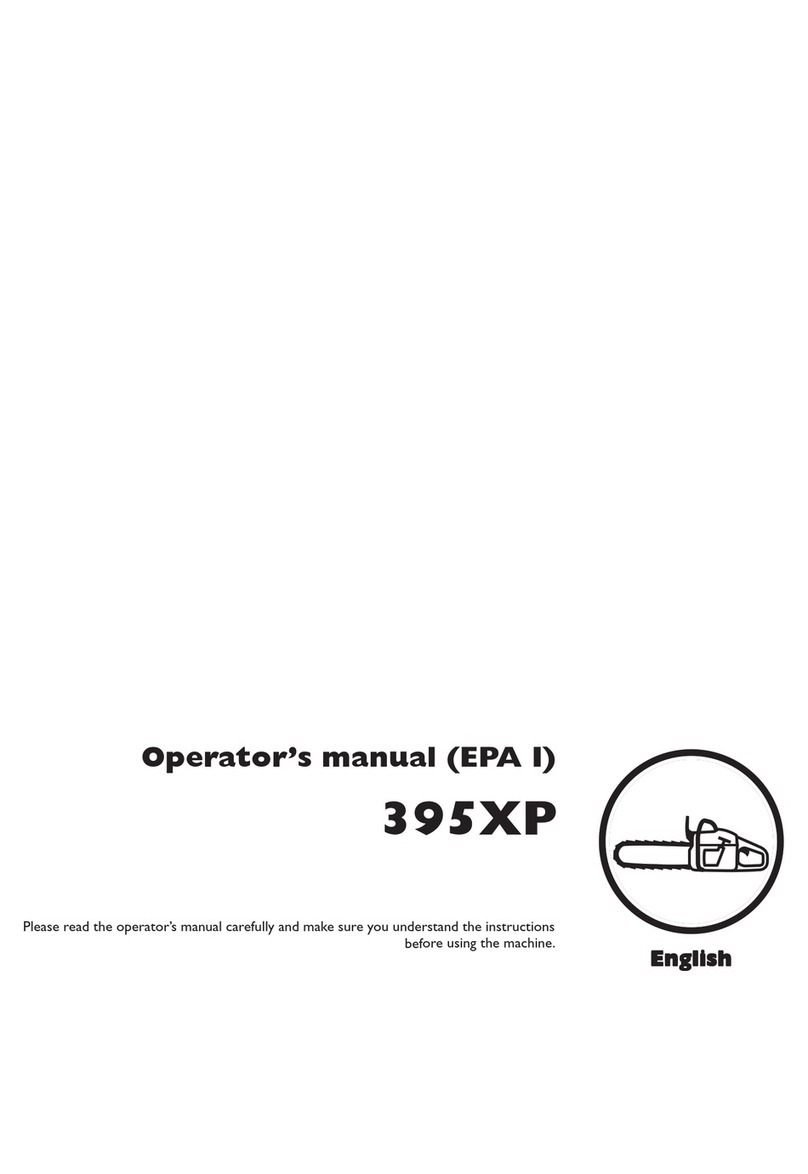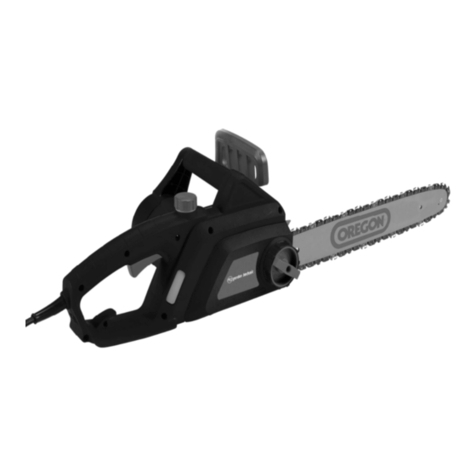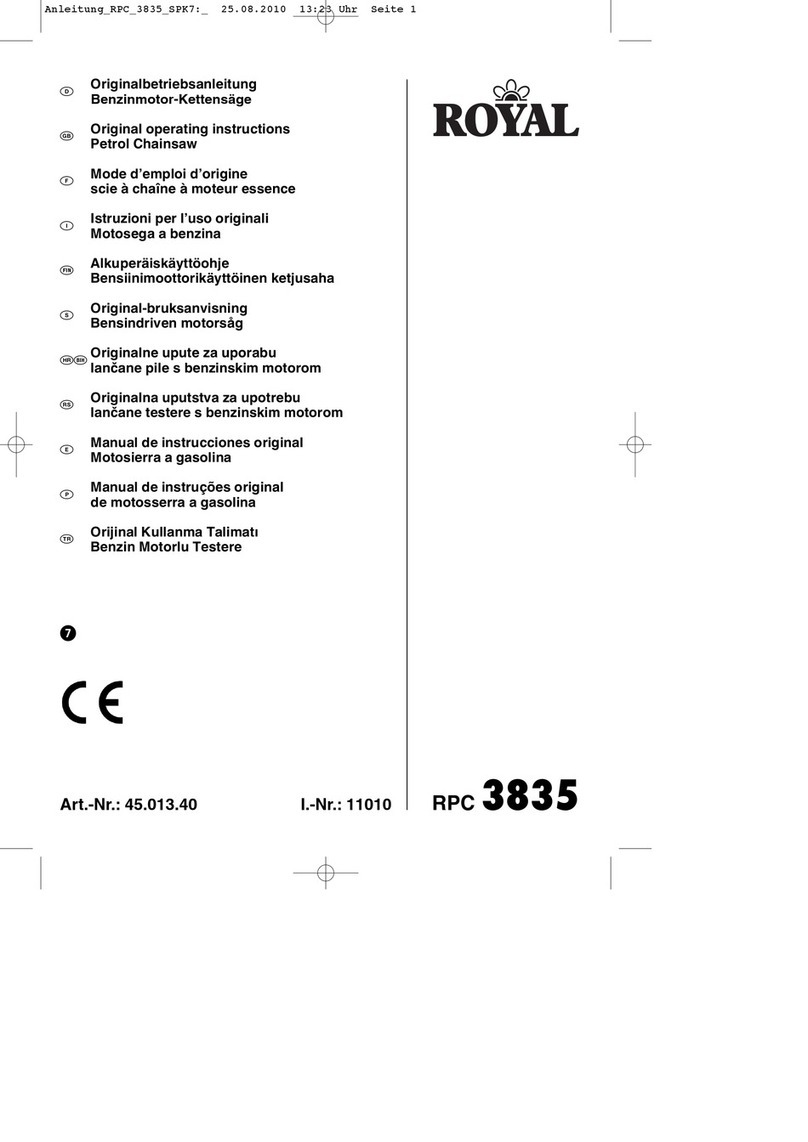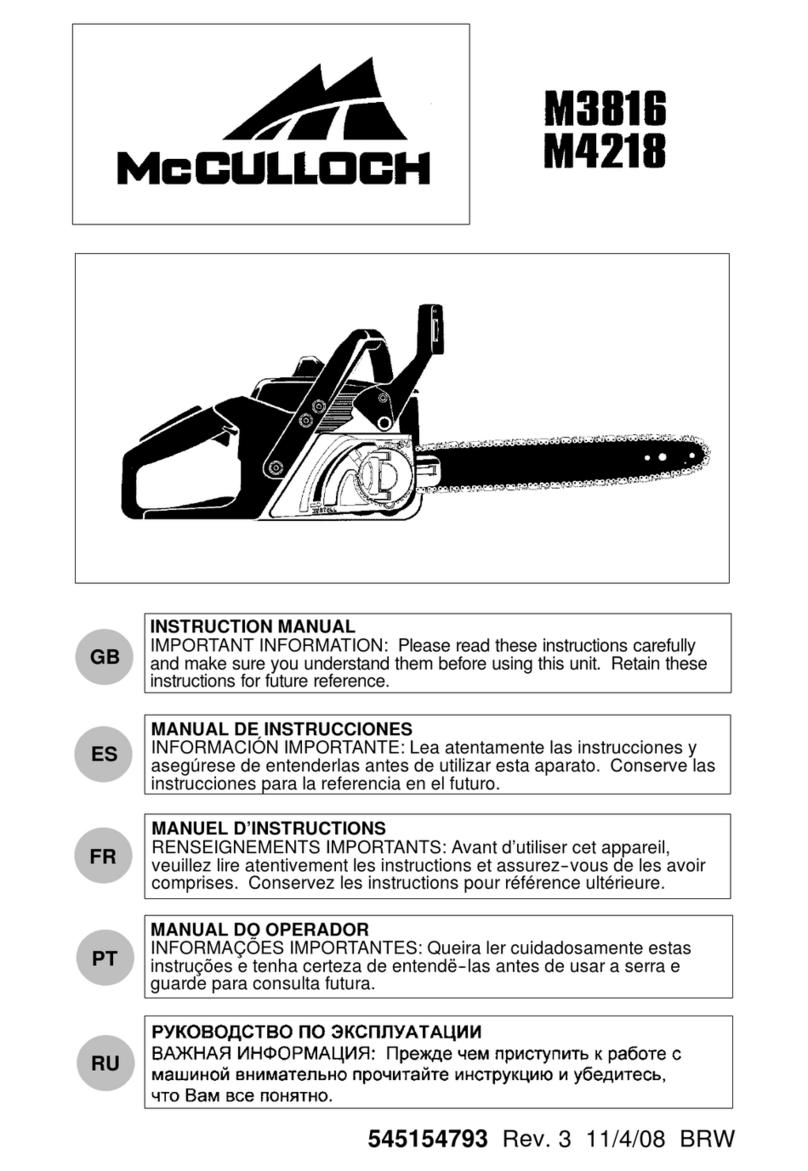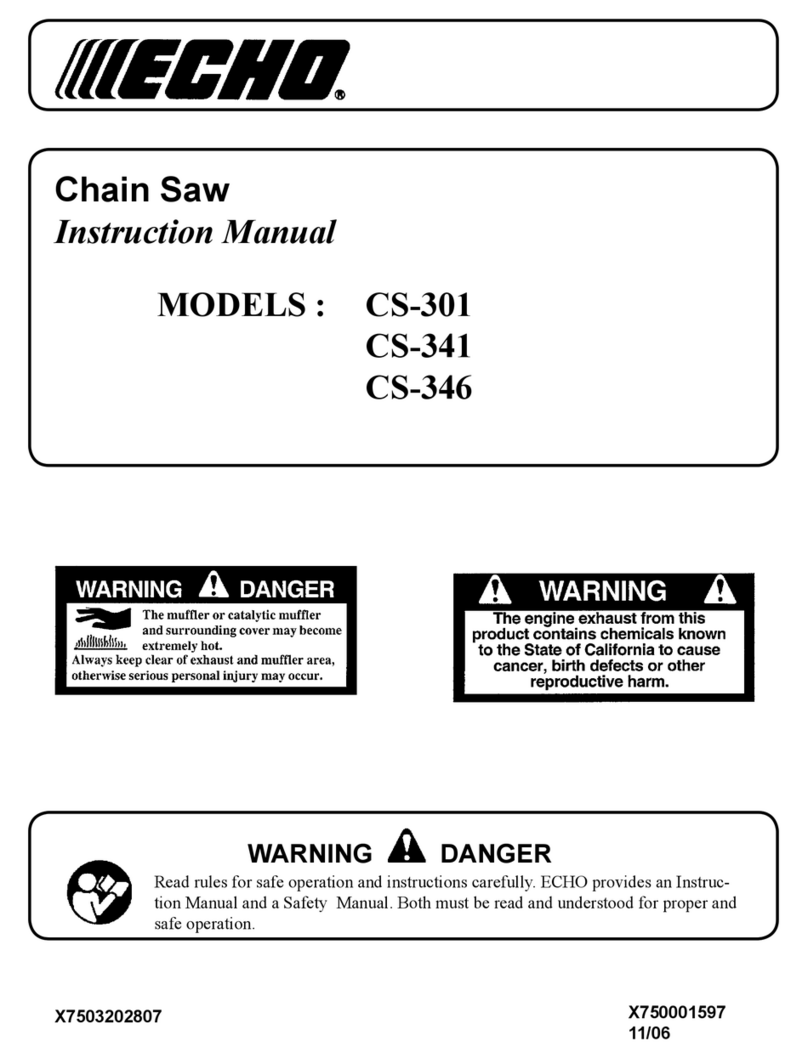
6
Additional safety precautions
The following additional safety precautions must be ob-
served by all users of chain saws:
1. Do not operate a chain saw when you are fatigued.
2. Use safety footwear; snug-tting clothing; protective
gloves; and eye, hearing, and head protection devi-
ces.
3. Use caution when handling fuel. Move the chain saw
at least 10 feet (3 m) from the fueling point before
starting the engine.
4. Do not allow other persons to be near the chain saw
when starting or cutting with the chain saw. Keep
bystanders and animals out of the work area.
5. Do not start cutting until you have a clear work
area, secure footing, and a planned retreat path from
the falling tree.
6. Keep all parts of your body away from the saw chain
when the engine is running.
7. Before you start the engine, make sure that the saw
chain is not contacting anything.
8. Carry the chain saw with the engine stopped, the
guide bar and saw chain to the rear, and the mufer
away from your body.
9. Do not operate a chain saw that is damaged, is im-
properly adjusted, or is not completely and securely
assembled. Be sure that the saw chain stops moving
when the throttle control trigger is released.
10. Shut off the engine before setting it down.
11. Use extreme caution when cutting small size brush
and saplings because slender material may catch
the saw chain and be whipped toward you or pull you
off balance.
12. When cutting a limb that is under tension be alert for
springback so that you will not be struck when the
tension on the wood bers is released.
13. Keep the handles dry, clean, and free of oil or fuel
mixture.
14. Operate the chain saw only in well-ventilated
areas.
15. Do not operate a chain saw in a tree unless you have
been specically trained to do so.
16. All chain saw service, other than the items listed in
the Operator’s Manual maintenance instructions,
should be performed by DOLMAR. (For example,
if improper tools are used to remove the ywheel
or if an improper tool is used to hold the ywheel in
order to remove the clutch structural damage to the
ywheel could occur and could subsequently cause
the ywheel to burst.)
17. When transporting your chain saw, use the chain
protection cover.
18. Low kickback bars and low kickback chains are desi-
gned to reduce the risk of kickback injury. Ask your
DOLMAR dealer about these devices.
Safety precautions for chain saw operators
While operating the chain saw please observe the follo-
wing rules:
a) Contact of the guide bar nose with any object
should be avoided.
b) Tip contact may cause the guide bar to move
suddenly upward and backward, which may
cause serious or fatal injury.
c) Always operate the chain saw with both hands.
WARNING!
Read and follow all safety precautions in the operator’s
manual. Failure to follow instructions could result in
serious injury. It is recommended to lend the chain
saw only to people who are experienced in working
with chain saws. Always hand over the Operator’s
and Safety Manual.
WARNING!
This chain saw is capable of severe kickback that
could result in serious injury to the operator. Do not
operate this chain saw unless you have extraordinary
cutting needs and experience in and special training
for dealing with kickback.
Chain saws with signicantly reduced kickback po-
tential are available.
WARNING!
Kickback may occur when the nose or tip of the guide
bar touches an object, or when the wood closes in
and pinches the saw chain in the cut. This contact
may abruptly stop the saw chain and in some cases
may cause a lightning fast reverse reaction, kicking
the guide bar up and back towards the user, or push
the guide bar back towards the operator.
Kickback may cause you to lose control of the
saw.
As a chain saw user, you can take several steps to
reduce the risk of a kickback and potential injury.
A. With a basic understanding of kickback, you can
reduce or eliminate the element of surprise. It is a
sudden surprise that contributes to accidents.
B. Keep a good rm grip on the saw with both hands,
your right hand on the rear grip and your left
hand on the tubular handle, when the engine is
running. Use a rm grip with thumbs and ngers
encircling the chain saw handles. A rm grip can
neutralize kickback and help you maintain control
of the saw. Don’t let go!
C. Make sure that the area in which you are cutting
is free from obstructions. Do not let the nose of
the guide bar contact the log, branch, or any
other obstructions which could be hit while you
are operating the saw.
D. Do not overreach or cut above shoulder height.
E. Follow manufacturer’s sharpening and main ten-
ance instructions for the saw chain.
F. Only use replacement bars and chains speci ed
by the manufacturer or the equivalent.

